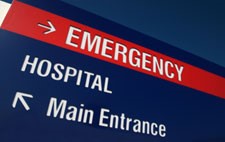Millions of Americans rely on prescription drugs to treat acute and chronic conditions. While the vast majority of drugs are prescribed and taken without incident, certain errors from a healthcare provider could lead to serious injury or even death. Let’s take a look.
What Is a Medication Error?
The National Coordinating Council for Medication Error Reporting and Prevention defines a medication error as “any preventable event that may cause or lead to inappropriate medication use or patient harm while the medication is in the control of the healthcare professional, patient, or consumer.”
In layman’s terms, a medication error is a mistake that leads to a patient becoming harmed by a drug. Because most medication errors are caused by negligence or carelessness, they are considered a form of medical malpractice and should be investigated by an experienced attorney.
What Constitutes a Medication Error?
A medication error could occur at several steps in the medication process, from the time a physician prescribes the drug to the time a pharmacist fills it. Much like any medical malpractice case, proving a medication error in court requires the plaintiff to prove that an error occurred and that the error led to direct harm, such as a severe allergic reaction or a wrongful death.
Examples of Medication Errors:
- The physician mistakenly prescribed the wrong drug
- The physician failed to consider the patient’s history when prescribing the drug
- The pharmacist filled the wrong drug
- The pharmacist mislabeled the drug
- The pharmacist failed to consult with the patient
- The nurse administering the drug administered the wrong dosage
- The nurse administering the medication did so at the wrong time
- The drug manufacturer altering the drug’s chemistry
Detecting a Medication Error
Because of the many layers involved in healthcare, a medication error may be difficult to identify. In fact, physicians and pharmacists may be hesitant to self-report a medication error out of fear for their job security. This is why patients need a reliable medical malpractice attorney on their side if they suspect their medication did more harm than good.
Here are a few things attorneys look for when determining whether or not a medication error took place.
- Patient-reported side effects
- Patient’s medical chart
- Administrative data from the hospital
- Computer data from the pharmacy
What to Do Next
If you suspect you were given the wrong medication, you should always contact an attorney. The team at Casey Devoti & Brockland has successfully litigated several medication error cases. We have the expertise to lead you through the legal process and achieve a favorable result. Call our office today for a free consultation with our attorneys.









